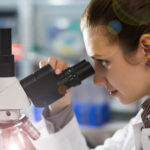
University of Liverpool to lead research on digestive issues in people with cystic fibrosis
Scientists from around the world are being led by the University of Liverpool to look at new ways of dealing with digestive issues in people living with cystic fibrosis (University of Liverpool, 2017). Cystic fibrosis is an inherited genetic condition that affects over 10,500 people in the UK. Symptoms begin in childhood and slowly progress … Continue reading University of Liverpool to lead research on digestive issues in people with cystic fibrosis

Drug combination could help children with arthritis
A clinical trial, funded by Arthritis Research UK and the National Institute for Health Research (NIHR), led by professors from the University of Liverpool and University of Bristol has discovered a drug combination that could help thousands of children with arthritis (University of Liverpool, 2017). Over 5,000 children and adolescents with juvenile idiopathic arthritis (JIA) … Continue reading Drug combination could help children with arthritis

Cells identified that could repair damaged kidney function
Researchers from the University of Liverpool have identified a cell type isolated from human kidneys that can help repair renal function without integrating into the kidneys (University of Liverpool, 2017). Most people know that a major function of the kidneys is to remove waste products and excess fluid from the body. These waste products and … Continue reading Cells identified that could repair damaged kidney function
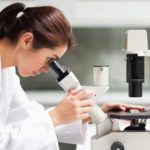
Zebrafish larvae could be an alternative pain research model
Having previously debunked the claim that fish don’t feel pain, the University of Liverpool’s Dr Lynne Sneddon has become a leading figure in the movement to reduce, replace and refine the use of animals in scientific research (University of Liverpool, 2017). Uncomfortable with the increasing use of adult fish in pain research, she and her … Continue reading Zebrafish larvae could be an alternative pain research model

University of Liverpool receive funding for life saving device for women in childbirth
The University of Liverpool has been awarded £850,000 from the National Institute for Health Research (NIHR) to further develop an award winning device that could save the lives of women all over the world (University of Liverpool, 2017). Professor of International Maternal Health, Andrew Weeks, from the Institute of Translational Medicine received the funds from … Continue reading University of Liverpool receive funding for life saving device for women in childbirth
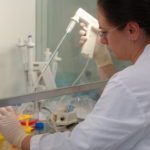
Farmed chicken’s immune system “too slow” to beat campylobacter
University of Liverpool research has revealed that the immune response of farmed chickens does not develop fast enough to fight off campylobacter during their short lifespan (University of Liverpool, 2017). The findings have important implications in the challenge towards developing a poultry vaccine for the bug, which is the UK’s leading cause of food poisoning. … Continue reading Farmed chicken’s immune system “too slow” to beat campylobacter

Study looks at reason for improved head and neck cancer survival rates
In the first study of its kind researchers from the University of Liverpool’s Institute of Translational Medicine have examined the possible reasons for the improved survival rates for some head and neck cancer patients in the UK (University of Liverpool, 2017). A rising incidence of oropharyngeal squamous cell carcinoma (OPSCC), a type head and neck … Continue reading Study looks at reason for improved head and neck cancer survival rates
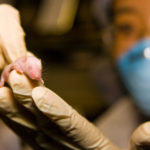
Why you shouldn’t pick lab mice up by their tails
A new study shows how mice are picked up can substantially change their behaviour in cognitive tests (University of Liverpool, 2017). The work, by Dr Kelly Gouveia and Professor Jane Hurst from the University of Liverpool was funded by the NC3Rs and is published in Scientific Reports. The researchers discovered that mice handled by a … Continue reading Why you shouldn’t pick lab mice up by their tails
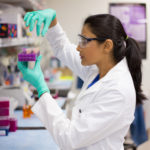
New centre to help accelerate development of new antibiotics to open
A state-of-the-art research centre to help accelerate the development of new antibiotics is set to be established by the University of Liverpool (University of Liverpool, 2017). The University of Liverpool has been awarded £630,000 of infrastructure funding by Innovate UK to create the Centre for Antimicrobial Pharmacodynamics (CAP) in partnership with Liverpool School of Tropical … Continue reading New centre to help accelerate development of new antibiotics to open

Phage therapy shown to kill drug-resistant superbug
Scientists from the University of Liverpool’s Institute of Infection and Global Health have shown that phage therapy could offer a safe and effective alternative to antibiotics in the treatment of cystic fibrosis lung infections (University of Liverpool, 2017). Chronic lung infections caused by the bacterium Pseudomonas aeruginosa are becoming increasingly difficult to treat due to … Continue reading Phage therapy shown to kill drug-resistant superbug








